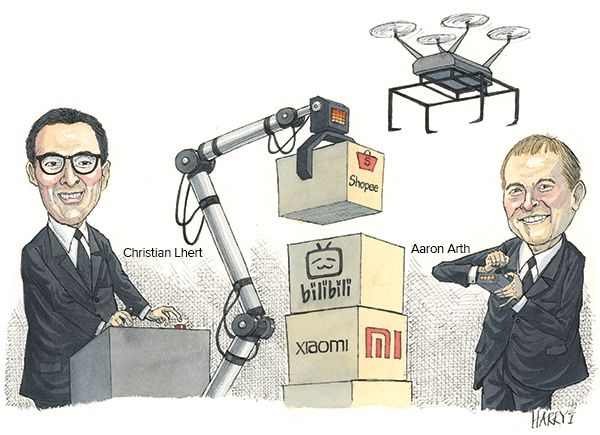Delivering delta
One bank built on its strengths as a trusted adviser to equity-linked issuers across Asia Pacific in 2020, gaining market share in the process. For leading the way, Goldman Sachs is IFR Asia’s Structured Equity House of the Year.

Goldman Sachs was at the forefront of a wave of equity-linked offerings in Asia in 2020, leading seven of the eight largest transactions during IFR’s review period. It pushed the envelope across multiple markets and products, particularly for US-listed Chinese issuers and those in the technology, media, and telecom (TMT) sector.
The equity-linked product played a key role in 2020, helping deliver growth capital to Asia in the midst of tremendous volatility.
“When things are upside down in the world, you have to be outwardly focused and in front of clients helping them navigate difficulties that they are experiencing,” said Aaron Arth, chief operating officer for investment banking and head of the financing group for Asia Pacific, ex-Japan.
“You have to be alongside them providing guidance, comfort and support. And if you do so, you will outpace the competition.”
International equity-linked issuance from Asia Pacific ex-Japan reached US$17.4bn during IFR’s review period, according to Refinitiv data. Goldman topped the league table with a 20% market share, raising US$3.4bn from 10 transactions.
The US bank’s ability to earn the trust of issuers was obvious from its numerous repeat mandates. A US$900m convertible bond for iQiyi in December was its third since Goldman helped the Chinese Netflix-like video platform go public in March 2018. Pinduoduo’s US$2bn CB, the largest from a US-listed China stock and part of a giant US$6bn equity combo, was the second CB Goldman had arranged for the Chinese e-commerce company since leading its US IPO in July 2018.
South-East Asian e-commerce company Sea again picked Goldman as a sole bookrunner on a US$1.15bn CB – the third time it has done so. Part of the proceeds from the 5.5-year CB, the longest tenor (without put option) achieved by an Asian ADR issuer, is for the payment of the cash component for the exchange of a portion of a CB due 2023.
Goldman’s dominance in the tech sector was impressive, but it was its determination to push the boundaries that differentiated it from its competitors.
In December, the bank helped Hong Kong-listed Chinese smartphone maker Xiaomi sell a US$855m seven-year put-five CB at the kind of aggressive terms that are usually only seen in the US market.
Xiaomi simultaneously achieved the most negative yield and the highest conversion premium of any convertible from the China tech sector, as Asian investors jumped at a rare chance to buy into an investment-grade tech equity-linked product.
The CB priced at a negative yield-to-put of –1.021% and a negative yield to maturity of –0.73%. The conversion premium was set at 55%, above the indicative range of 42.5%–52.5%.
As well as arranging deals for long-term clients, Goldman’s equity-linked prowess helped it impress new customers.
“We have been very good in gaining market share by breaking into new clients. One of the reasons of the success we have around the product is really about tailoring every transaction to achieve very specific objectives,” said Christian Lhert, head of equity-linked origination for Asia Pacific ex-Japan.
A US$800m CB for Bilibili in May was Goldman’s first mandate from the Nasdaq-listed Chinese video-streaming site, and helped the bank win more business: it is one of four sponsors for Bilibili’s planned secondary listing in Hong Kong.
Nasdaq-listed Huazhu Group was a similar story. Goldman sold a US$500m CB for the Chinese hotel group in May with four other banks. In September, Goldman, as one of only two sponsors, led Huazhu’s HK$7bn Hong Kong secondary listing.
Goldman also worked on landmark transactions beyond China. It brought India’s first CB in four years with a US$1bn deal for telecom company Bharti Airtel in January, the biggest CB from the country since 2007.
Goldman also helped two Australian issuers raise capital to navigate the challenging operating environment caused by Covid-19. The bank, as sole global coordinator, sold a €100m (US$121m) CB for online travel company Webjet to repay debt. In November, after drug companies Pfizer and BioNTech announced a coronavirus vaccine breakthrough, it moved quickly to seal a A$400m (US$291m) CB for Australian travel agent Flight Centre Travel Group.
To see the digital version of this report, please click here
To purchase printed copies or a PDF, please email gloria.balbastro@lseg.com